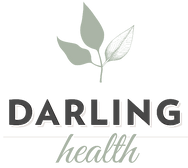
Shedding Light on the Winter Blues: How Nutrition Can Help Prevent Seasonal Affective Disorder

As the days grow shorter and the sun becomes a rarer sight, many of us feel a noticeable shift in our mood and energy levels. For some, this "winter slump" can escalate into something more significant: Seasonal Affective Disorder, or SAD. While SAD is a complex condition with various contributing factors, emerging research continues to highlight a powerful ally in its prevention and management: nutrition.
A recent review article published in Nutrients, titled "The Role of Water-Soluble Vitamins and Vitamin D in Prevention and Treatment of Depression and Seasonal Affective Disorder in Adults,"1 dives deep into how specific micronutrients can influence our mental well-being, especially during those darker months.
So, let's explore how stocking up on these vital nutrients can potentially help you keep the winter blues at bay.
Vitamin D: The Sunshine Vitamin, Even When the Sun Hides
It's no secret that Vitamin D is often dubbed the "sunshine vitamin" because our bodies produce it when exposed to sunlight. But what happens when sunlight is scarce, as it is during the winter? Levels can plummet, and this can have consequences for our mood.
Research consistently suggests a strong link between Vitamin D deficiency and an increased risk of depression, including SAD. Vitamin D receptors are found throughout the brain, and it plays a crucial role in various neurological functions, including the synthesis of neurotransmitters like serotonin, which are key to mood regulation.
How to boost your Vitamin D:
- Sunlight Exposure (when possible): In the winter months aim to expose your arms or legs to sunlight to synthesise vitamin D. Consider downloading an app like UVI Mate, that will tell you how long you can be outside before you will start to burn.
- Dietary Sources: Incorporate fatty fish like salmon, mackerel, and sardines, as well as fortified foods such as milk, cereals, and some plant-based milks.
- Supplementation: Especially in regions with long, dark winters, a Vitamin D supplement (under the guidance of a healthcare professional) can be a highly effective way to maintain adequate levels.
Water-Soluble Vitamins: Your Brain's Essential Helpers
The article also highlights the role of "water-soluble vitamins." This group primarily includes the B vitamins (B1, B2, B3, B5, B6, B7, B9-Folate, and B12) and Vitamin C. While all play vital roles in overall health, several B vitamins are particularly noteworthy for their impact on brain function and mood.
1. B Vitamins: The Neurotransmitter Architects
B vitamins are essential co-factors in countless enzymatic reactions in the body, including those involved in energy production and, crucially, the synthesis of neurotransmitters.
- Vitamin B6: Involved in the production of serotonin and norepinephrine, two neurotransmitters that significantly impact mood.
- Folate (Vitamin B9): Critical for DNA synthesis and repair, and for producing neurotransmitters. Low folate levels have been linked to depression.
- Vitamin B12: Essential for nerve function and the production of brain chemicals. B12 deficiency can lead to fatigue, cognitive issues, and mood disturbances.
How to get your B Vitamins:
- Variety is Key: A diverse diet rich in whole grains, leafy green vegetables, legumes, nuts, seeds, lean meats, poultry, fish, and dairy products will provide a spectrum of B vitamins.
- Specific Sources:
- B6: Chickpeas, bananas, potatoes, fortified cereals.
- Folate: Spinach, asparagus, broccoli, lentils, beans.
- B12: Found primarily in animal products (meat, fish, eggs, dairy) as well as fortified foods like nutritional yeast.
2. Vitamin C: More Than Just for Colds
While Vitamin C is famously known for its immune-boosting properties, it also plays a role in brain health. It's a powerful antioxidant, protecting brain cells from damage, and is involved in the synthesis of neurotransmitters.
How to get your Vitamin C:
- Citrus fruits, bell peppers, strawberries, kiwi, broccoli, and leafy greens are excellent sources.
Beyond the Plate: A Holistic Approach
While focusing on nutrient-rich foods and considering supplementation can be a powerful step in preventing SAD, it's important to remember that it's often part of a broader, holistic approach:
- Light Therapy: Using a SAD lamp that mimics natural outdoor light can be very effective.
- Regular Exercise: Physical activity is a proven mood booster.
- Prioritise Sleep: Quality rest is fundamental for mental health.
- Stay Connected: Social interaction can combat feelings of isolation.
- Mindfulness & Stress Management: Practices like meditation and yoga can help manage stress and improve mood.
Take Charge of Your Winter Wellness
The scientific community continues to uncover the intricate connections between our diet and our mental health. As we head into the cooler, darker months, empowering yourself with knowledge about key nutrients like Vitamin D and water-soluble vitamins can be a proactive step in preventing the onset of Seasonal Affective Disorder.
If you consistently experience symptoms of SAD, it's crucial to consult with a healthcare professional. At Darling Health we have a team of professionals to support you with this including Psychologists, Naturopaths & Acupuncturists.
References:
Jahan-Mihan, A., Stevens, P., Medero-Alfonso, S., Brace, G., Overby, L. K., Berg, K., & Labyak, C. (2024). The Role of Water-Soluble Vitamins and Vitamin D in Prevention and Treatment of Depression and Seasonal Affective Disorder in Adults. Nutrients, 16(12), 1902. https://doi.org/10.3390/nu16121902


